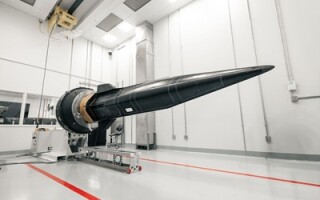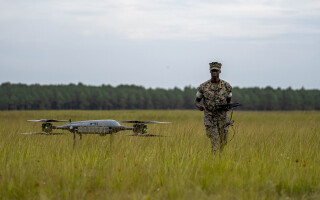Autonomous surface ship launches for U.S. Navy on its way to home port
NewsJanuary 17, 2024
MOBILE, Ala. The U.S. Navy launched its newest Overlord Unmanned Surface Vessel Vanguard (OUSV3) from Austal USA’s shipyard in Mobile, Alabama, on its way to join sister ships, dubbed OUSV2 Ranger and OUSV4 Mariner, as part of the Navy’s USV Division 1 (USVDIV 1).
According to the Navy announcement, Vanguard is the first USV for the Navy purpose-built from the keel up to operate autonomously, under a joint development agreement between a team led by Austal USA and L3Harris.
Once it completes the outfitting and testing phase, Vanguard will autonomously travel to San Diego, joining its sister ships in its home port; USVDIV 1 is the Surface Navy organization responsible for experimenting with and tactical development of USVs. USVDIV 1 also operates two additional USVs, Sea Hunter and Seahawk, which were developed separately from the Overlord program.
“We are excited to see the progress the L3Harris and Austal teams are making on the construction of Vanguard,” said Capt. Scot Searles, program manager of the Unmanned Maritime Systems (PMS 406) program office. “Designed and built as a USV from the beginning, Vanguard will bring new, built-in capabilities that our previous OUSVs did not possess.”
The Overlord program is managed by the Navy’s Program Executive Office for Unmanned and Small Combatants (PEO USC) and executed by PMS 406. The Overlord program has played a major role in the Navy's ongoing experimentation with USVs and accelerating use of USVs in operations. Knowledge gained from Overlord, the Navy release says, plays an important role in the development and refining of requirements for the Navy’s future "Large USV" program.







